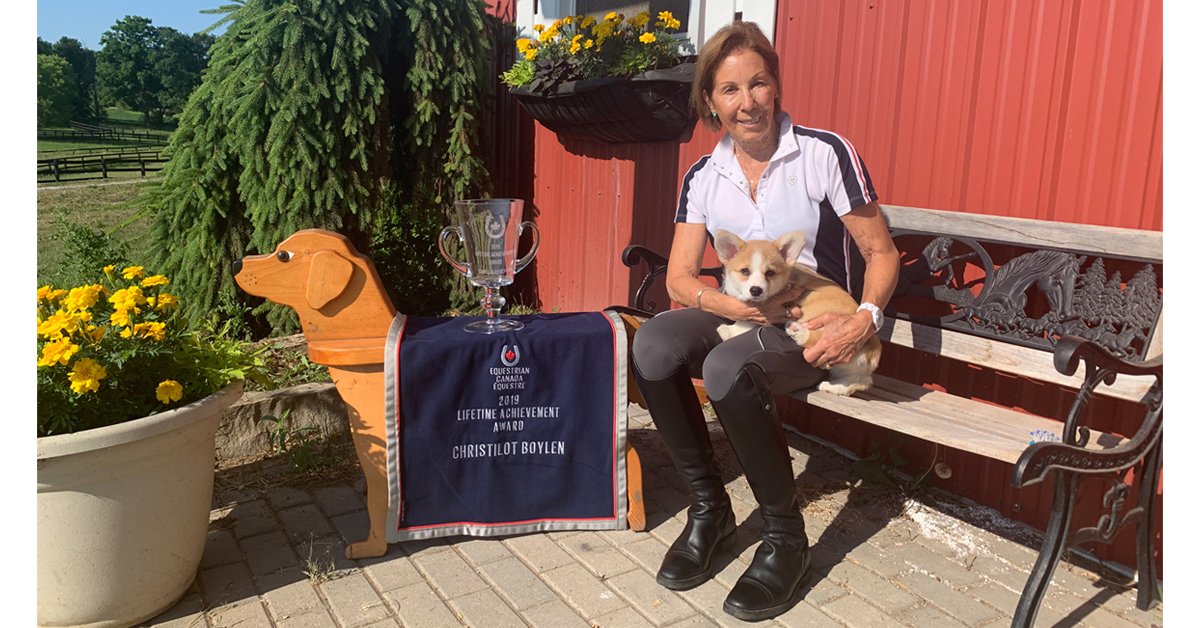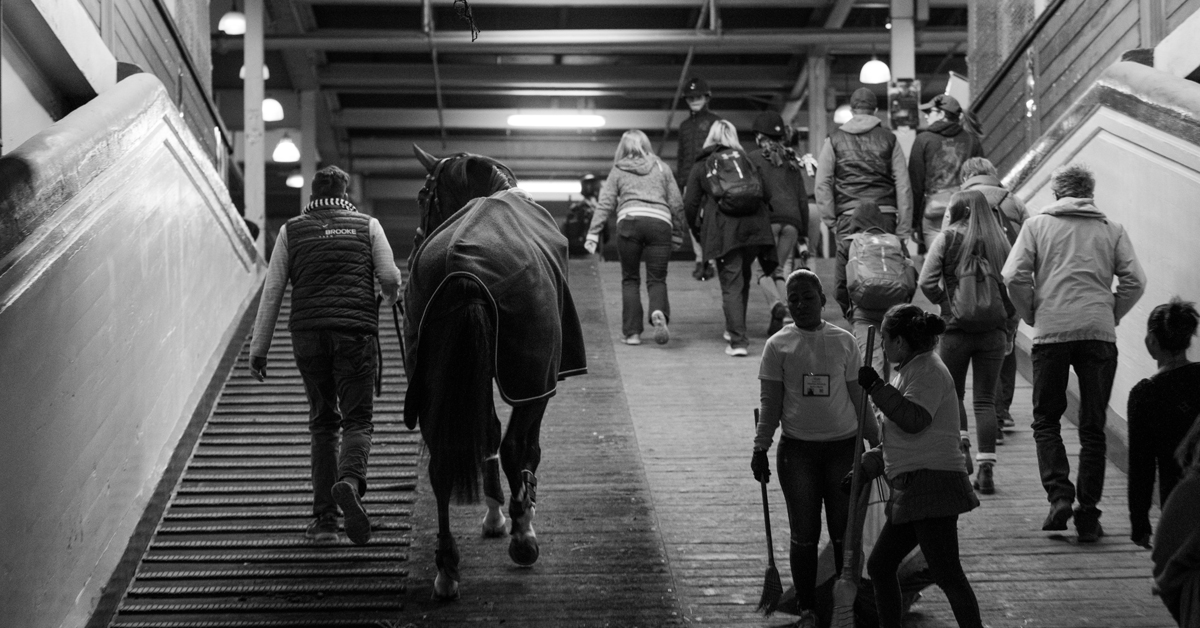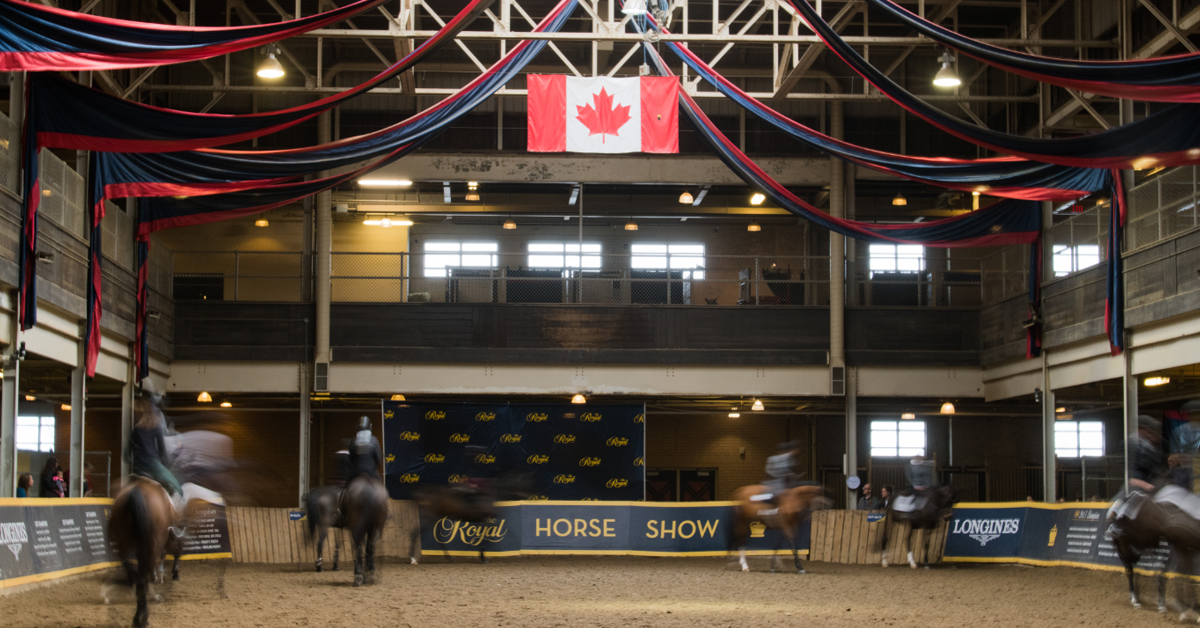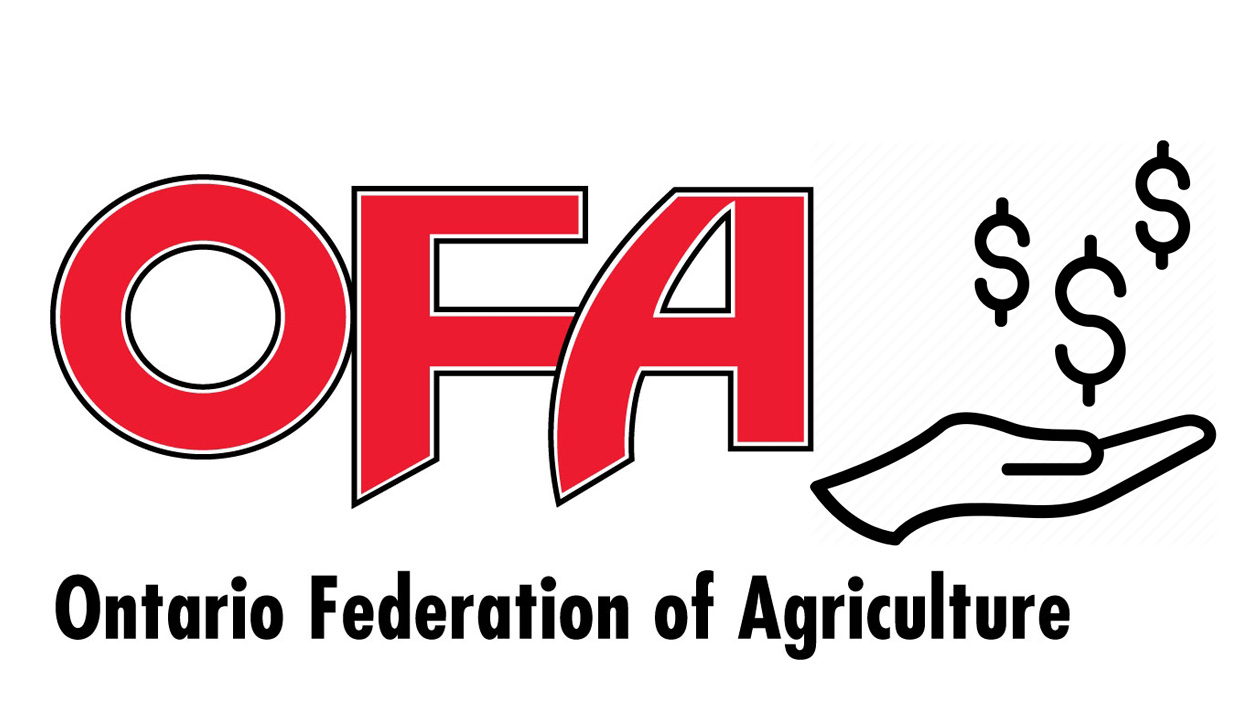A horse at the Palm Beach International Equestrian Center (PBIEC) has been tested and received a negative result for EHV-1. The horse was previously stabled in Barn 7 at the HITS Post Time Farm in Ocala, Florida, and due to that circumstance and an initial symptom of fever, the horse was proactively put into isolation by Equestrian Sport Productions (ESP), management company of the FTI Consulting Winter Equestrian Festival, where the horse is competing.
Saturday morning, ESP management met with Dr. Scott Swerdlin and Dr. Kathleen Timmons of Palm Beach Equine Clinic, Dr. Kit Miller, the horse’s treating veterinarian, and Dr. Cristina Anzures of the Florida Department of Agriculture to discuss the situation and what measurements would be taken.
At thatpoint in time, the biosecurity protocols and restrictions listed below were still in place. However, while horses are still required to have a 48 hour health certificate, this can be a health statement on official letterhead of a licensed veterinarian and does not specifically have to be a State of Florida health certificate.
The horse that was put into in isolation arrived at the PBIEC grounds on the evening of Monday, February 19. When the horse ran a fever on Friday afternoon, February 22, the horse’s personal vet, Dr. Kit Miller, contacted horse show management. Due to the horse’s proximity to the positive case in Ocala and initial fever symptom, on Friday Dr. Miller performed a swab and whole blood for PCR testing, which was sent to the EDS lab in Lexington, KY, along with the batch of samples from the horses still in quarantine in Ocala.
On Friday afternoon, ESP management chose to move the horse into an isolated tent on PBIEC property without state recommendation. The horse and all of its equipment was moved to the isolated tent in “Pod F” of PBIEC property.
Dr. Miller was contacted by the Florida Department of Agriculture, Division of Animal Industry veterinarian, Dr. Cristina Anzures. Dr. Anzures arrived at PBIEC and was shown the the horse in isolation as well as the original tent where it was stabled. Quarantine was enacted on the two aisles of the original tent due to proximity to other horses in the tent.
ESP placed a security guard at the aisles of the quarantined tent, a perimeter around the tent was formed, and biosecurity such as hand and foot sanitation was enforced.
As of 3 p.m. today, Saturday, February 23, the results were received and found negative for the horse in isolation at PBIEC. The horse will stay in isolation until released by the State veterinarian.
The quarantine at the original tent at PBIEC has been lifted upon Department of Agriculture recommendation.
All of the horses that are still under quarantine in Barn 7 in Ocala had negative tests. The only horse that tested positive in Ocala is still being treated at the University of Florida.
Equestrian Sport Productions would like to thank those involved with making responsible decisions for the safety of the horses at PBIEC and the timely and helpful coordination from the Florida Department of Agriculture.
For those interested in more information on EHV-1, please visit www.equestriansport.com to read an informational report by the University of California-Davis.
Biosecurity Protocols and Restrictions Still In Place:
Effective immediately, no horses will be allowed to enter PBIEC property (both WEF and GDF grounds at The Stadium) without a health certificate or statement of health on official licensed veterinarian letterhead within 48 hours of arriving. It is mandatory
that all horses shipping into the PBIEC (both WEF and GDF grounds at The Stadium) arrive during daylight hours.
Those arriving at the PBIEC who need health certificates or statements of health can either call Palm Beach Equine Clinic (PBEC) to receive a current health certificate or can get one from the PBEC veterinarian on the grounds.
ESP is asking all equestrians, especially those stabling off PBIEC property, to enact biosecurity protocols and be proactive and responsible for their horses, including daily temperature charts.
There is currently no restriction on horses leaving the property.
An integral part of a showing environment includes healthy horses. Exhibitors, especially those traveling long distances, can contribute to that healthy environment by following some basic recommendations listed below.
1) A current negative coggins test. Please renew before it expires, and not just before it is necessary to leave the state. It is strongly recommended that all horses be vaccinated for Equine EHV-1 (either modified live or killed vaccine) no sooner than 7 days prior and no later than 90 days prior to entering the show grounds. Most EHV-1 vaccines are only considered effective for 90 days. Check with your veterinarian about which vaccine you use.
2) A health certificate or statement of health within 48 hours is required for all horses entering the property.All horses should be able to produce proof of vaccine, preferably labeled on these health certificates or statements. Those who need health certificates when they arrive can contact Palm Beach Equine Clinic at 561-793-1599 or contact the PBEC vet on the show grounds.
3) You should be able to document your horses normal temperature before arrival. Please do not ship horses with elevated temperatures. It is recommended that you establish a log of temperatures taken at least twice daily. If there is an elevated temperature for more than a 24 hour period, please consult your local Veterinarian immediately.
4) Every effort should be made to minimize stress and commingling of horses shipped long distances. Extra hours on a horse van, or moving from stable to stable, is the fastest way to compromise your horses’ and your neighbors’ horses’ health.
5) Any horse on the show grounds with a fever of unknown origin or of suspicious origin must be reported to ESP, LLC Management. It is always better to err on the side safety. Isolation stalls will either be available on the grounds or at a local veterinary practice if the need arises.
6) Please take the time to review equine good hygiene practices and express its importance to your groom in everyday care
THE FOLLOWING STATEMENT WAS POSTED ON THE HITS WEBSITE ON FEB. 23
Florida EHV-1 Update, No New Cases Confirmed at HITS Ocala
A horse competing at HITS Ocala was referred to the University of Florida, College of Veterinary Medicine after showing clinical neurological signs on February 20th. The horse subsequently tested positive for the Equine Herpes Virus (EHV-1), wild-type strain. Currently, the horse is in stable condition and continues to be treated at the University of Florida. There are no additional confirmed cases at this time.
Within hours of the positive diagnosis, an informative meeting was held at HITS Ocala where trainers were encouraged to strengthen their bio-security measures. Diane Kitchen, DVM from the Department of Agriculture, several other veterinarians and Tom Struzzieri from HITS, took part in the meeting. Suggested precautions included taking all horses’ temperatures on a regular basis.
Since the infected horse was diagnosed at the hospital, the following has transpired specific to HITS Ocala:
Most importantly, the sick horse is stable and his condition has improved.
Veterinarians at the horse show, under the watchful eye of Dr. Kitchen, have tested other horses that were either in direct contact with the infected horse, or who had a fever that was noticeably high. HITS is extremely happy to report that all tested samples have been reported negative.
The horse show has quarantined all the horses that were stabled in Tent 7, where the originally infected horse was stabled.
The horse show has continued and is in full swing. No restrictions on horses coming or going (except to and from the quarantined tent) are in place in any way.
No restrictions on horses coming and going across Florida border are in place.
As of Saturday, there is a quarantined tent at both Ocala and Wellington. Good bio-security measures are in place and are being strictly enforced in Ocala, and will continue through the three remaining weeks of shows.
The Division of Animal Industry has begun a disease investigation, which includes the HITS show grounds in Ocala, the local index farm and multiple premises that have horses that may have been exposed to the positive horse. Currently, there are seven state quarantines in place. These quarantines include the index farm, Tent 7 at HITS and five additional premises in Florida; two farms in the Ocala area, one in Pinellas Park, one in St. Augustine and one in Wellington. At this point in the investigation there are no known exposed horses in other states.
Additional movement requirements or restrictions have not been imposed by Florida or any other states at this time. Horse owners and trainers are advised to contact the venue of destination for any additional requirements prior to travel.
The entire equine community should practice prudent bio-security and report any suspected cases of EHV-1. For reporting, call 850-410-0900 Monday through Friday 8:00am-5:00pm and 1-800-342-5869 after hours and weekends.
The Florida Department of Agriculture and Consumer Services with continue to work with HITS management, trainers and veterinarians to ensure proper safeguards are taken to prevent further spread of the disease.
Frequent informational updates will be provided, so please continue to visit this website regularly.
More from Horse Sport:




